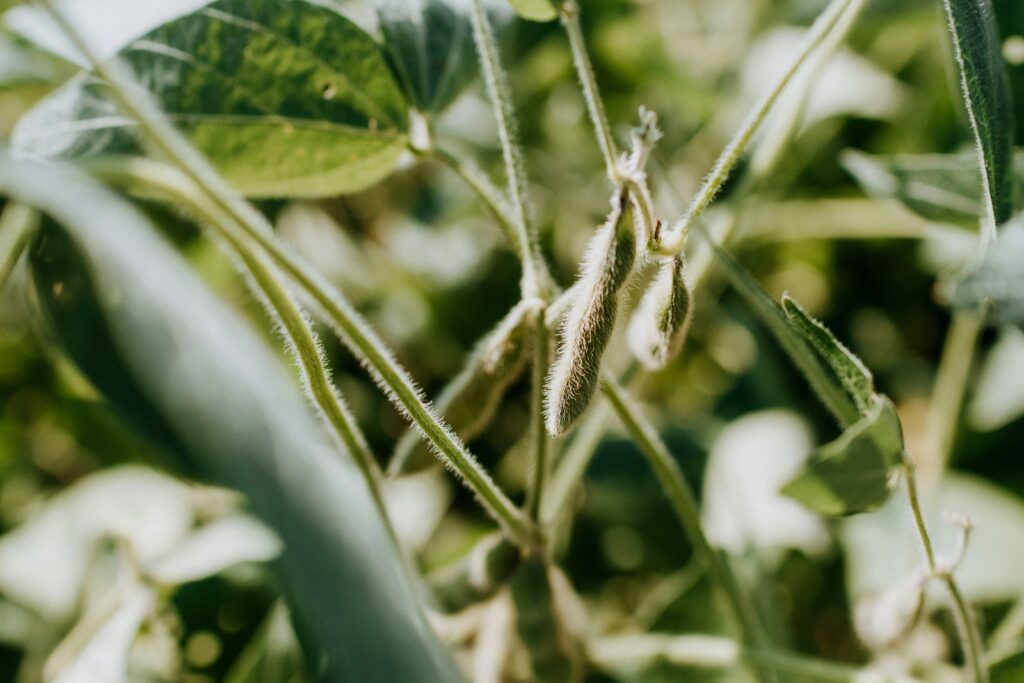
Aug. 15, 2025—Not long into a discussion around vegan shopping, Dr. Jason Scorse declares a mantra-of-sorts: “It’s not that f***ing complicated!”
This ranks among the passionate points he makes in exploring the flex possible with a plant-based diet, which also include a clearer conscience and gorilla-grade strength from purely fruits and vegetables, namely his three go-tos, beans, peas and lentils.
After observing his slideshow seminar on the subject for prospective students at Middlebury Institute of International Studies (where I contribute as a storyteller), I knew I wanted to share it with the Edible Monterey Bay audience.
At MIIS, he teaches courses in environmental and natural resource economics, ocean and coastal economics, and behavioral economics.
He also serves as the chair of the Environmental Policy and Management program, and director of the Center for the Blue Economy.
At the latter, he helps define in real terms how caretaking coastal eco-systems makes transcendent economic sense, on top of all the benefits to holistic well-being for all creatures considered.
His presentation reaches the point of heartbreak. But he’s also ready with remedies to treat the pain, and feel better physically and spiritually.
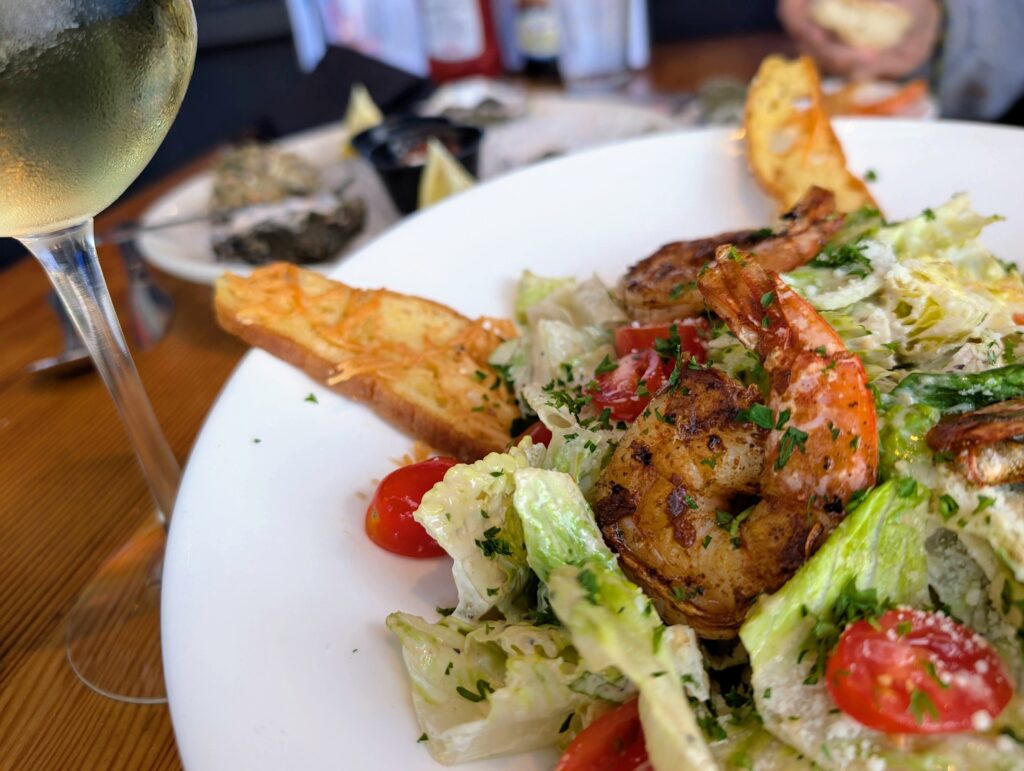
Inspiration to share those lessons today came in the form of a reader’s outrage.
While I appreciate the promotion of organic farming in [last week’s] “Found Treasure: Caesar (Chavez) Salad at Flaherty’s Seafood Grill,” I think it’s awful that you tried to connect Cesar Chavez to a salad with seafood.
He was a vegetarian. So is Dolores Huerta.
It’s about nonviolence, peace, love of animals, and love of life, so please don’t degrade their message and practices with your sales pitch.
Other readers thanked me for sharing tools to help support marginalized farmworkers.
But I appreciated this one more.
While I wasn’t trying to upset anyone about seafood add-ons, I was looking to evoke some helpful anger around how the field labor community is treated.
Scorse takes a similar tack with his talk, because many of the outcomes of mainstream meat, poultry and pork production in America definitely merit outrage.
And action which isn’t difficult.
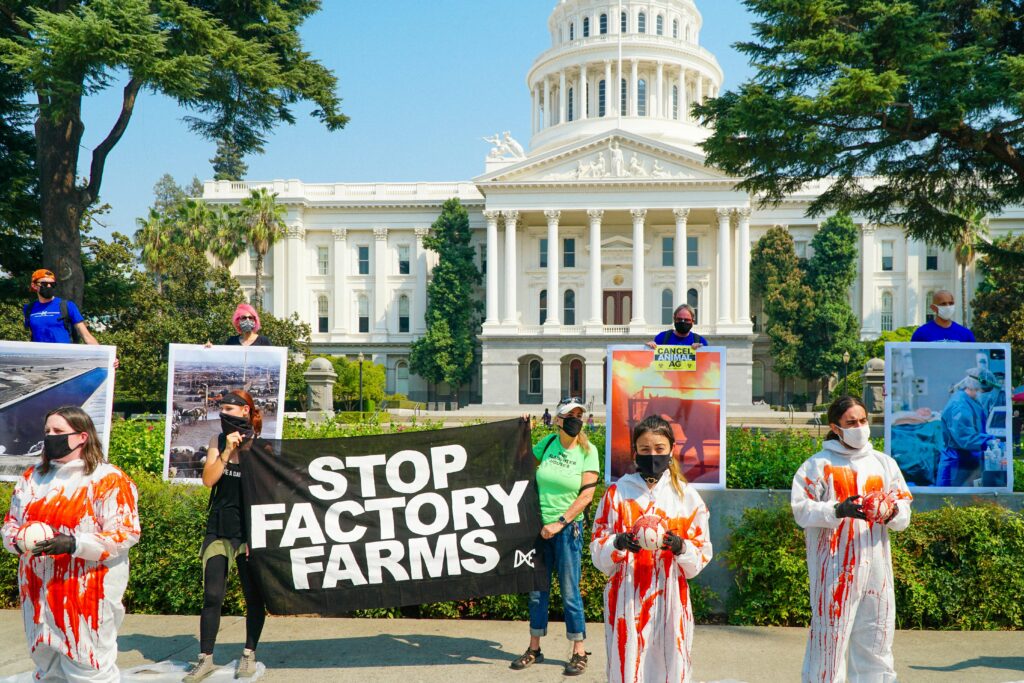
So here come some quick highlights from Scorce’s stump speech, which he has evolved over his three decades plus as a vegan.
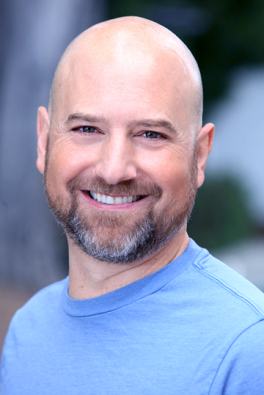
• “Eating plant-based food is not deprivation. It’s rekindling and reconnecting with thousand-years-old traditions, and not modern bullshit Happy Meal [messaging] fed into our brains. It’s an exciting adventure that opens you to possibilities…You don’t have to give up anything, you can choose something better.”
• Humans and livestock make up 96% of the mammal biomass on Earth. Deforestation to create pasture means a death sentence for all sorts of species. “If you care about wildlife, you can’t look at the current food system without horror,” he says.
• “Most of the strongest animals on the planet eat plants all day,” he says. “Break the mindset that vegans are soft and weak. Nature says f*** you to that.”
• “I don’t want to give you nightmares, but [treatment of animals for consumption] is too freaking depressing. I trust you are ethical people. You care. I can say with 100 percent certainty if you were to witness what was being done, you would be appalled…These are our genetic cousins. They feel pleasure and pain. The things we do for convenience—taste—is unacceptable. I look forward to the day we’re righteous. It doesn’t mean we don’t kill [animals]. It means we don’t torture them. I guarantee if you could see the conditions, you would agree.”
• It takes 10 times the amount of water to grow the grain or grass to feed cows, chickens, pigs, sheep and goats and then eat those animals than to consume the plants themselves. In the face of mounting water shortages throughout the world, that’s a simple truth. Or as Scorse says, “It’s a basic ecological mathematical fact.”

One of the benefits of being hundo-p vegan for Scorce is getting his home unit in on the adventure.
“My whole family, my kid, my dog, my next kid,” he says, noting he and his wife are expecting.
Queen Belle, his forest-loving pitbull-healer-beagle-mystery mix, figures into one of a handful of practical and energizing recommendations to make healthier and more ethical eating much easier.
• Remember dogs are omnivorous.

Queen Belle lives the good life—we’re talking wet food, dry food, kibble, “bones,” jerky, treats—with zero of the pulverized animal byproduct that populates so much of what we feed our fur babies.
As Scorse notes, “A huge amount of factory-farmed animal byproducts go into pet food, but [our pets] can be super healthy on plant proteins.”
He flags V-Dog as an epic outlet for all those diverse vegan pooch products mentioned.
• Don’t forget where you live.
“We have access to best produce in the world,” Scorse says. Go to the farmers market, he adds, get a CSA, eat seasonally. “It’s a basic way to eat great, whether vegan or not.”
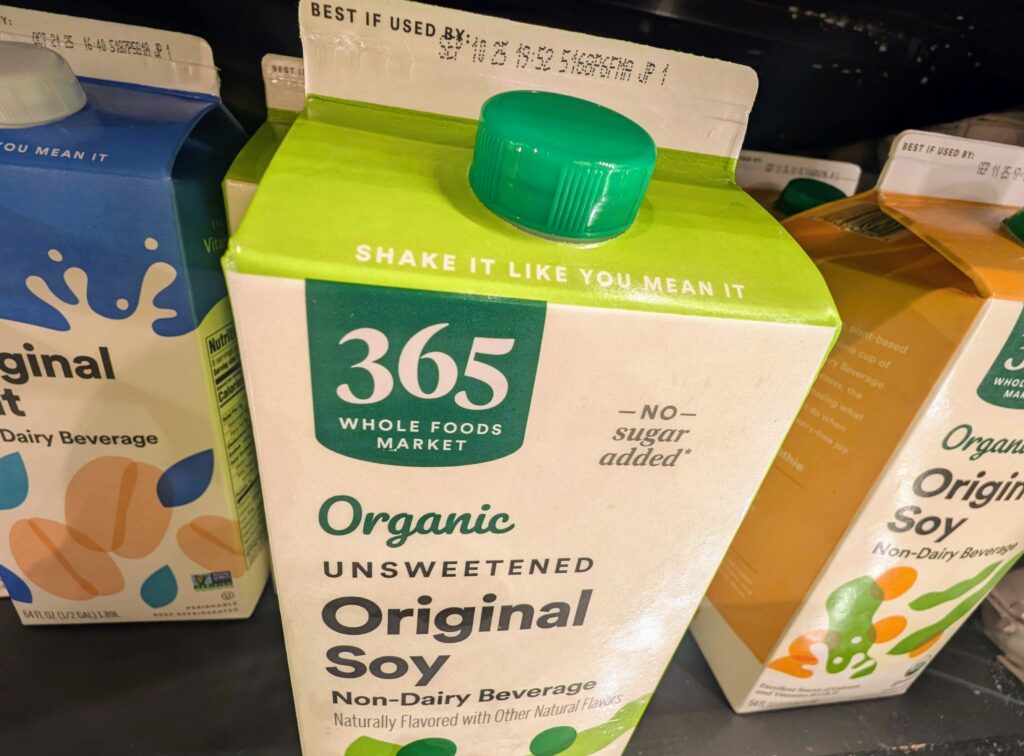
• Embrace ancient wisdom.
Scorse almost spits out the reality check that bacon cheeseburgers are infant delinquents (“They’re so recent!”) compared to the wise elder that is soy, which happens to be a complete protein, and in his estimation, up to 5,000 years into its human use, and “probably the most incredible plant in the world.”
He shouts out a pair of supreme (and organic) options to deliver high-performance soy:
1) Whole Foods 365 house brand unsweetened soy milk, with its 1:1 ratio of carbs to protein, no sugar, smooth and creamy experience, 7-8 grams of protein per serving, plus calcium and iron (“Way better for you than cow’s milk!” he says);
2) Wildwood High Protein Tofu, another motherlode of quality input at 70 grams of protein a pack.
• Tap into helpful resources.
“Just Google ‘vegan’ whatever,” he says. “Anything you want to veganize is possible. I promise the vegan blueberry cheesecake I make—look for the highest ratings with the most reviews and you know it’s going to be good—is better than any dairy cheesecake out there.”
When I mention I get a lot of ideas from the New York Times “The Veggie” e-newsletter, he adds his own favorite online outpost: Post Punk Kitchen, which upon a brief review does generate a lot of hearty, healthy and mouthwatering ideas, from tofu short ribs to jerk sloppy joes to “sorta classic” pot pie.
• Release the yeast.
Here comes a general audience golden ticket. (Props to meat loyalists if you made it this far.) “Everybody, vegan or not, should order online nutritional yeast, store it in a jar, and put it on everything,” he says, the trademark passion ever-persistent.
Beans. Salads. Curries. Pesto (instead of Parmensan). He kept listing other possibilities so fast my typing toes couldn’t keep up.
He extolls nutritional yeast’s pure protein profile, the minerals, the B vitamins, and the “nutty, cheesy, good-with-everything” character of it.
“A miracle food,” he says.
• Embrace the outcome.
“It’s a complete myth that eating meat equals strength,” he says. “Think about mountain gorillas, elephants, horses.”
He could go on, and will if you want. Instead he cuts to the punchline.
“You’re living the best possible life, the healthiest, with your conscience clean, while supporting organic farming,” Scorse says. “If you do it, you’re f***ing living large.”
About the author
Mark C. Anderson, Edible Monterey Bay's managing editor, appears on "Friday Found Treasures" via KRML 94.7 every week, a little after 12pm noon. Reach him via mark@ediblemontereybay.com.
- Mark C. Andersonhttps://www.ediblemontereybay.com/author/markcanderson/
- Mark C. Andersonhttps://www.ediblemontereybay.com/author/markcanderson/
- Mark C. Andersonhttps://www.ediblemontereybay.com/author/markcanderson/
- Mark C. Andersonhttps://www.ediblemontereybay.com/author/markcanderson/



